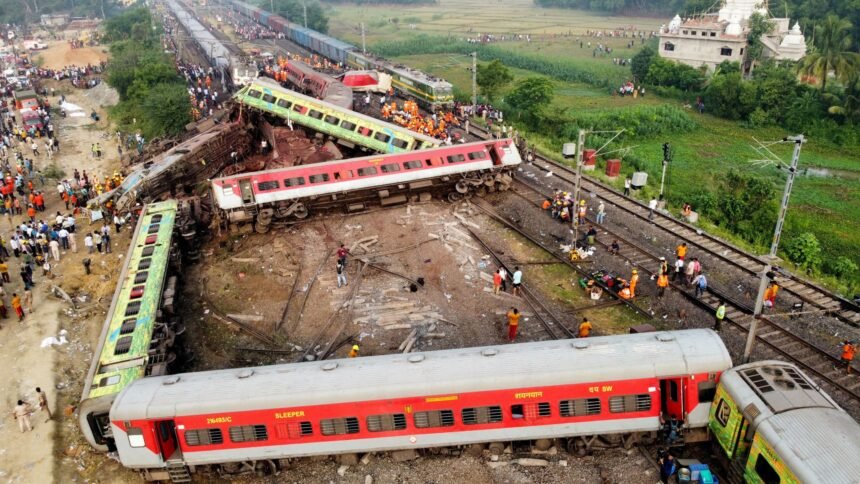The tragic collision of three trains in Balasore, which claimed the lives of over 261 people and left around 900 injured, has brought attention to the absence of a crucial safety system developed by the Indian Railways. The Kavach system, designed to prevent train accidents caused by driver error or other factors, was not implemented on the tracks where the collision occurred.
According to Indian Railways spokesperson Amitabh Sharma, the rescue operation has been completed, and the focus has shifted to restoration work. However, it was revealed that the Kavach system was not available on the route where the accident took place.
Kavach is an automatic train protection (ATP) system developed by the Research Design and Standards Organisation in collaboration with three Indian companies. This system plays a crucial role in enhancing safety by helping locomotive drivers avoid missing danger signals and controlling speeding. Additionally, Kavach ensures that trains operate safely, even in low-visibility conditions.
Railway Minister Ashwini Vaishnaw personally tested the Kavach system and shared his positive experience on social media. In a tweet last year, he mentioned the successful testing of the system, specifically highlighting its effectiveness in preventing rear-end collisions. Vaishnaw stated that Kavach automatically stopped the locomotive before reaching a distance of 380 meters from another locomotive at the front. The system controls train speed by automatically applying brakes if the driver fails to do so in a timely manner.
The absence of the Kavach system on the tracks in Balasore raises concerns about the potential impact it may have had on preventing or mitigating the severity of the collision. With its ability to enhance safety measures and prevent accidents caused by human error, the implementation of the Kavach system is seen as a significant step towards improving railway safety.
As investigations into the Balasore collision progress, the absence of the Kavach system is likely to be closely examined. The incident highlights the need for comprehensive safety measures and the importance of promptly implementing advanced technologies to prevent similar accidents in the future. The Indian Railways will likely prioritize the evaluation and potential expansion of the Kavach system to ensure enhanced safety across its extensive network.
